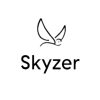For modern businesses, efficiency and accuracy are more important than ever—especially when it comes to handling sales and finances. That’s why integrating your Point of Sale (POS) system with accounting software isn’t just convenient, it’s a game-changer. Here’s a guide to why this integration is essential for retail, hospitality, and small businesses in New Zealand.
What Does Integration Mean?
Integrating your POS with accounting software simply means that sales data flows directly from your checkout system into your books. Instead of juggling spreadsheets or manual entry, your numbers sync automatically—saving you time and reducing human error.
1. Say Goodbye to Manual Data Entry
Manual bookkeeping can be tedious and prone to mistakes. When your POS and accounting software “talk” to each other:
- Sales, returns, and inventory data auto-sync—no more copying receipts or keying in numbers late at night.
- Fewer errors: Eliminate mismatches between your till and your financial records.
- Saves hours each week—especially valuable for busy business owners.
2. Real-Time Financial Insights
With automatic sync, you can see:
- Up-to-the-minute sales and expenses.
- Accurate, real-time cash flow, so you always know where your business stands.
- Trends in top-selling products or hours, helping you make smarter decisions.
3. Simplified GST and Tax Preparation
Keeping up with IRD requirements can be stressful for New Zealand businesses. Integrated systems:
- Capture GST details at each sale.
- Generate reports that make tax time painless.
- Store all transactions securely, simplifying audits and compliance.
4. Better Inventory & Stock Control
When POS syncs with accounting:
- Stock levels update instantaneously after every transaction.
- Accounting software can match purchases to payments, making it easier to spot discrepancies.
- Fast identification of bestsellers or slow movers, for smarter restocking.
5. Faster, More Informed Decisions
Instant access to financial data means:
- You don’t have to wait for monthly reconciliations to understand your business health.
- Set sales targets, spot bottlenecks, or flag cost overruns early.
- Make hiring or purchasing decisions confidently, based on numbers—not guesses.
6. Improved Customer Experience
With less time spent on paperwork:
- You and your staff can focus on serving customers.
- Faster checkouts result from up-to-date system syncing.
- Loyalty programs and tailored offers become easier to track and deliver.
7. Cost Savings and Business Growth
Automation often means less need for extensive admin support or extra hours spent on accounts. Over time, integrating your POS with accounting software can:
- Reduce payroll and admin costs.
- Minimize costly errors that sap profit.
- Free up resources so you can invest in marketing, staff, or product innovation.
Real-World Example
Imagine a growing Kiwi café that upgraded to an integrated POS and accounting system. Payroll figures sync each week, GST is correctly calculated on every flat white, and the owner can log in anytime to check sales or create a tax report with just a click. Result: more weekends free and fewer late nights staring at spreadsheets.
Is Integration Right for You?
If you run a New Zealand business using affordable POS or billing software—like Simply POS—connecting it with your accounting platform might be the upgrade that helps you scale. Most modern systems make integration straightforward, often with just a few clicks.
Final Thought
Integrating your POS with accounting software isn’t about adding another tech gadget—it’s about working smarter, not harder. Whether you’re running a local boutique, a café, or a service business, automating your sale-to-books workflow can transform your day-to-day operations and set you up for long-term success.
Ready to experience the benefits? Ask Simply POS about integration options for your business today!




